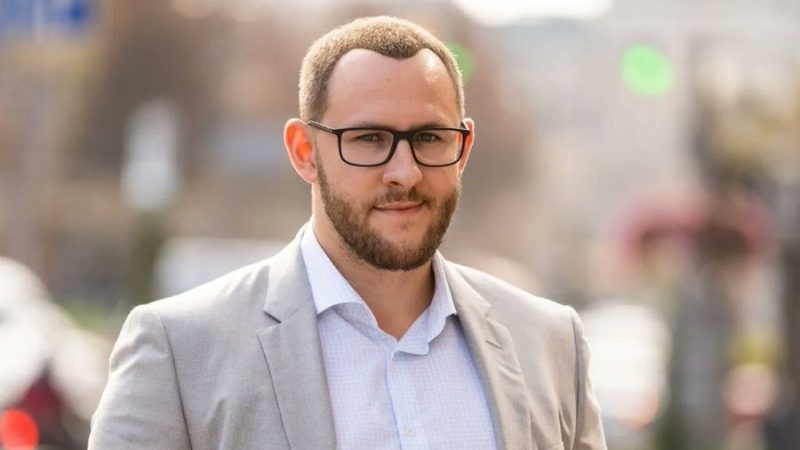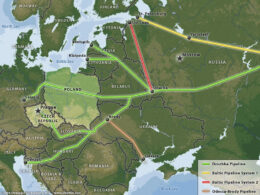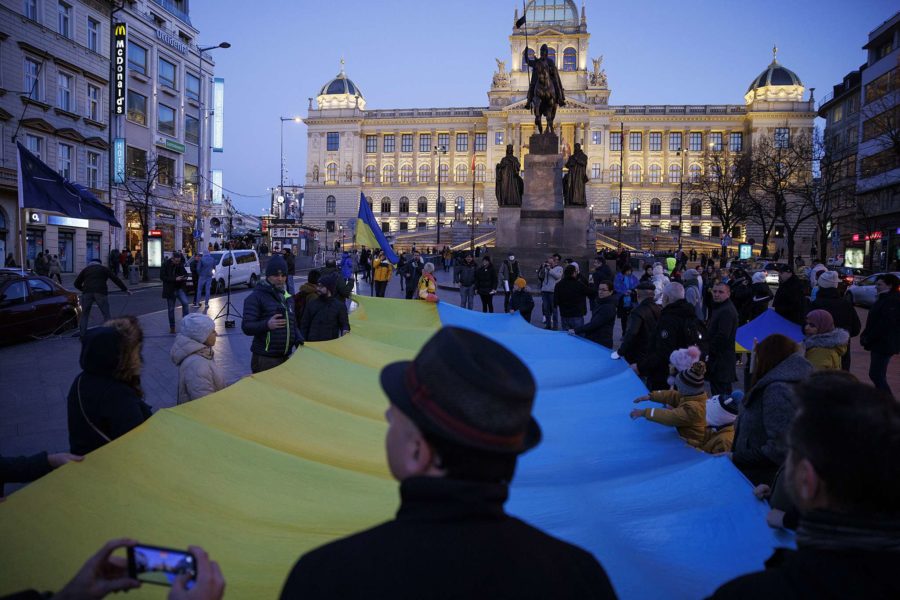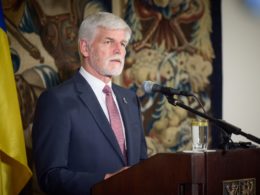Slovakia has granted temporary protection to Artem Marchevskyi, a Ukrainian and Israeli citizen who is accused of running a pro-Russian disinformation campaign via the Czech-registered Voice of Europe website.
The decision raised concerns among some of Slovakia's EU allies and comes amid unease regarding Prime Minister Robert Fico's position on Russia. Fico's new government has been warmer to Moscow than its predecessor and has ended state military support for Ukraine.
Marchevsky's protection in Slovakia was reported by the Czech outlet Denik N. His lawyer, Leonid Kushnarenko, confirmed to the publication that his client is currently in Slovakia.
Slovakia's Minister of Interior Matúš Šutaj Eštok refused to comment on his department's decision to Denik N. However, the ministry stated that they are dealing with Marchevskyi's case together with intelligence services. They added that the ministry will not comment on Marchevskyi's stay in Slovakia until the investigation is completed.
Artem Marchevskyi received temporary protection in Slovakia after the Czech authorities imposed sanctions against him, specifically blocking his assets and funds in bank accounts.
In the Czech Republic, Marchevskyi is suspected of leading a pro-Russian influence network together with former Ukrainian MP and oligarch Viktor Medvedchuk, known as Russian President Vladimir Putin's "man in Ukraine" before his arrest and exchange to Russia in 2022.
Marchevskyi is a long-time associate of Medvedchuk: he was the general producer of the Medvedchuk-owned media 112, sanctioned by the Ukrainian government in 2021 amid accusations of being a Russian propaganda channel.
Czechia claims that the Voice of Europe website was used to spread anti-Ukrainian propaganda and disinformation at Medvedchuk's direction.
On 27 March, Marchevskyi and Medvedchuk were placed on a Czech sanctions list, following which the Facebook page and YouTube channel of Voice of Europe went silent, according to RFE/RL.
Voice of Europe accused of spreading Russian propaganda, bribery of EU politicians
The Voice of Europe website, registered in Prague in 2016 under the name "Dada-Mapo," has been implicated in a significant controversy surrounding the spread of Russian propaganda and the bribery of European politicians.
According to investigations, the site functioned as a platform for Kremlin disinformation campaigns and was involved in funneling funds to political candidates in several European countries and offering a platform for fringe candidates, in hopes of influencing the outcome of upcoming European Parliament elections in June.
The Czech authorities, with the assistance of the Ukrainian Security Service (SBU), uncovered this network which allegedly paid politicians to promote Russian interests.
This revelation has triggered a call among Members of the European Parliament for a thorough investigation and has led to sanctions against individuals involved.
Following Russia's full-scale invasion of Ukraine in February 2022, Marchevskyi was granted temporary protection in the Czech Republic as part of European Union efforts to help people fleeing the fighting. However, Czech officials expected him to lose that status 60 days after his inclusion on the sanctions list, depriving him of EU residency.
Related:
- MEPs call to investigate Russia’s bribery of EU politicians
- Russia suspected of funneling funds to Germany’s AfD party for pro-Russian messaging
- Ukraine’s SBU helped Czech BIS counterintelligence agency reveal pro-Russian MEP influence scheme
- Ukraine sanctions TV channels of Putin’s top-tier ally in Ukraine. Here is what they broadcasted





